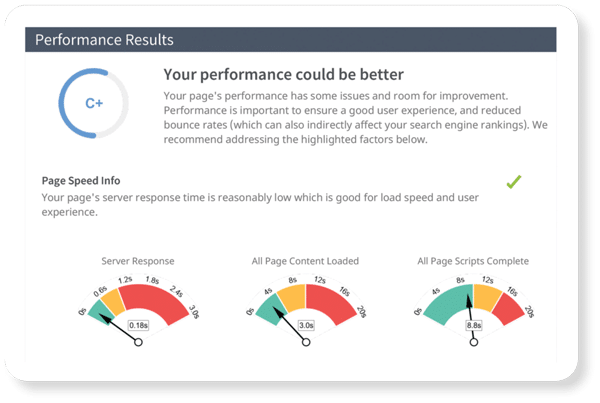The Pew Internet Research Health Fact Sheet suggests that 72% of Internet users have looked online for health care information within the previous year.
Instead of looking through the Yellow Pages, consumers turn to the web for more information, rankings, reviews and any other pertinent information about health care providers.
With the impending value consumers place on online information, it’s vital for doctors and other health care facilities to have a strong online medical reputation. Continue reading for a few tips and best practices in creating and managing your online medical reputation.
List Your Practice on Google My Business
While there are seemingly a countless number of sites you can list your practice, none are more important than Google My Business.
Google My Business allows you to control the information conveyed to audiences whether patients are looking for your practice on Search, Maps, or Google+. You can then list your practice on sites that cater to your particular niche and to your geographical area.
List Your Practice on Local Review Sites
According to the BrightLocal Local Consumer Review Survey, 89% of consumers trust online reviews as much as personal recommendations.
As a result, it’s imperative for you to be active on review sites in order to improve your online medical reputation. Some of the most popular review sites are:
- Google Places and Google+
- Yelp
- Yahoo! Local Listings
- Citysearch
- Angies List
- Foursquare
- Infogroup
Ask for Reviews
After patients visit your practice, it’s a great idea to ask them to leave a review. In most cases, patients will be completely happy to leave a review, especially if they are asked or reminded. You could also place links on your website to various review sites.
You should never write fake reviews or testimonials. While writing fake reviews could have you banned, it could also severely destroy your online medical reputation.
Reply to Reviews
Whether your client leaves a negative or positive review, it’s important to always provide a reply and acknowledge the time they took to leave a review.
When the reviews are positive, let them know that you appreciate their honest opinion. If the review is negative, the goal should be to get the reviewer to convert their review into a positive one. In any case, reviews should be viewed as a learning tool to improve your business. It’s a great practice to answer as many reviews as possible, which will go a long way with building your online medical reputation.
Implement Search Engine Optimization (SEO) Practices
Search rankings are just as important as reviews when it comes to building your online medical reputation. As a matter of fact, the two are interconnected, and neither should be neglected.
When you implement an effective SEO campaign, you will increase the visibility of your site and attract more patients. As a result, your site will generate more reviews that will, in turn, bolster your online medical reputation.
Create a Medical Blog
Creating a medical blog is an excellent way to provide patients and potential patients with the information they desire while strengthening your online medical reputation.
According to a recent report from Fleishman-Hillard, 89% of consumers utilize Google or other search engines to research products, services, or medical practices before making a purchase or scheduling an appointment.
Medical blogs allow you to attract a large portion of this traffic by creating content based on the most highly researched keywords related to your practice.
Build Social Media Presence
According to Pew Internet Project’s Social Networking Fact Sheet, 74% of online adults are engaged on social networking sites. Based on this survey,
- 71% of adults use Facebook
- 23% of online adults use Twitter
- 26% of adults online use Instagram
- 28% are active on Pinterest
- 28% are active on LinkedIn
With such a large number of adults on social media, it’s important to utilize these networks to build your online medical reputation. A few important tips for utilizing social media in your branding efforts are:
- Write creative and explanative descriptions
- Display links back to your site, especially on the main page
- Make sure your username is in line with your brand
- Implement your brand logo into your profile pic
- Pay special attention to your privacy settings
Once you have created your profile, make sure you place widgets and links on your website prompting patients to connect with you on social media.
Go Mobile
According to the previously mentioned Pew Health Fact Sheet, 52% of smartphone owners and 31% of cell phone owners have used their mobile device to find healthcare or medical information.
As a result, it’s important for your online medical reputation to provide users with a positive mobile experience. A responsive mobile design will automatically fit the user’s screen, regardless of the size of the device.


